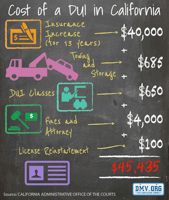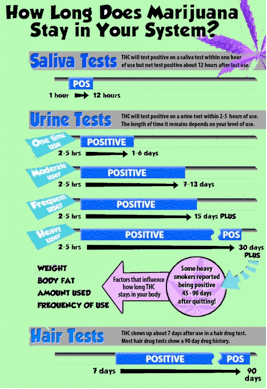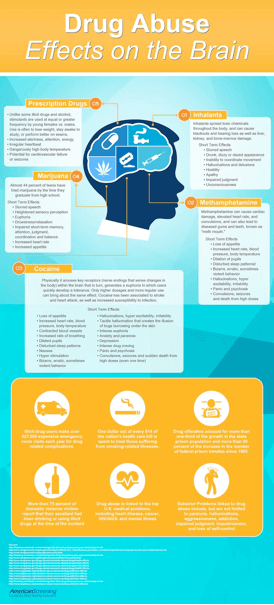
California voters approved Proposition 64 Adult Use of Marijuana Act in February of 2016, legalizing recreational pot. The state of California has become the world’s largest cannabis market and will be issuing sales licenses by January 1, 2018 for direct distribution. Navigating this new landscape, includes evaluating THC-related DUIS, sometimes called DUID as an acronym for driving under the influence of drugs. I caught up with Darren Kavinoky, founder of 1.800.NoCuffs for a clearer understanding of impaired driving, and why it is illegal no matter what the substance.
Driving while stoned isn’t a good idea, and even though it’s a crime in all 50 states, it’s a tough one for police and prosecutors to prove!
“Police across California are challenged as there is no ‘bright line rule’ in California for driving under the influence of drugs, like there is in your typical DUI involving alcohol. Everyone is familiar with the legal limit of .08 for people over 21. While Colorado, for example, has an established legal limit for THC of .05 nanograms of active tetrahydrocannabinol (THC) in their blood, and can be prosecuted for driving under the influence (DUI),”[1] says Kavinoky.
“California certainly has the ability to prosecute DUI cases involving marijuana under California Vehicle Code section 23152, even in the absence of any chemical test. The key, when it comes to impairment, is whether the driver is unable to drive with the same caution as a person of ordinary prudence in similar circumstances.”
Currently, the saliva test is voluntary in California. Drivers can refuse. The science is still developing. According to Kavinoky, “Law enforcement officers are now being trained to spot the signs of impairment. California is also unique, in that the decision of what testing devices might be used can differ not just from county to county, but by different law enforcement agencies within a county. So for example, in Los Angeles, DUI tests are done by one kind of machine when the arrest is made by the CHP, but a different one if it’s LAPD, and a different one still if LASD made the DUI arrest. We can look forward to the same kind of chaos in the world of testing for THC. Of course, it’s widely known that THC metabolites can stay in the system for a long time, which makes it even more difficult for prosecutors to prove impairment at the time of driving, which is the only time that matters in a DUI case, whether it involves alcohol or drugs, legal or illegal.”
Roadside, drug driving device tests are now being tested in Kern, Los Angeles and Sacramento counties. California police departments are using the saliva tests after a Kern County judge last year accepted the results as evidence in a drugged driving case. More California police departments will be using saliva tests.
California Vehicle Code 23152(e) and Drugged Driving applies to all drugs, not just illegal ones. If a drug impairs your ability to drive, it doesn’t matter whether it was a prescription drug or not, or whether it is legal or illegal. If your ability to drive safely is impaired by marijuana, don’t drive.
Interestingly, THC blood levels don’t have much to do with impairment. Cannabis metabolites can remain in fat cells after you stop smoking and can be detected for as long as three months in frequent pot smokers. Medical marijuana patients may regularly have elevated THC blood levels.
According to Darren Kavinoky, “There are more people getting high and coming face-to-face with a law enforcement officer. Johnny Law has a whole array in his arsenal from Drug Recognition Experts (DREs) to state-compliant drug and alcohol testing devices. There’s little doubt the pendulum is swinging around the legalization or decriminalization of marijuana, both for medical use and recreational. There’s no question this will lead to heightened awareness on the part of law enforcement, and then to increased arrests because of the tools available to police.”

The following excerpt from the National Highway Traffic Safety Commission: Drugs and Human Performance Fact Sheet, summarized the known effects of cannabis on driving:
“Data from road traffic arrests and fatalities indicate that after alcohol, cannabis is the most frequently detected psychoactive substance among driving populations.
Cannabis has been shown to impair performance on driving simulator tasks and on open and closed driving courses for up to approximately three hours.”
Reported reactions include:
- Decreased Car Handling Performance
- Increased Reaction Times
- Impaired Time and Distance Estimation
- Inability to Maintain Headway
- Lateral Travel
- Subjective Sleepiness
- Motor Incoordination
- Impaired Sustained Vigilance
The report continues, “Cannabis may particularly impair monotonous and prolonged driving. Decision times to evaluate situations and determine appropriate responses increase. Mixing alcohol and cannabis may dramatically produce effects greater than either drug on its own.”
Kavinoky explains, “Even though California doesn’t have an established legal limit for the amount of THC in a driver’s system, law enforcement and prosecutors will still try and demonstrate the driver was impaired using the very same elements they use in a DUI alcohol case, where the person refuses to submit to a chemical test. They are:
- Driving pattern;
- Physical signs and symptoms (such as red eyes, or being unsteady on your feet);
- Field sobriety test performance (typical tests include Horizontal Gaze Nystagmus or HGN, which is simply an involuntary jerking of the eyeball; the Walk-and-Turn test of nine steps out, a turn, and nine steps back; and the One Leg Stand, where the subject lifts a foot six inches off the ground, and counts aloud 1001, 1002 and so on for 30 seconds).
“Prosecutors will also use a chemical test, if one is given, and typically bring in a crime lab ‘expert’ (who never personally observed any of the pertinent events) to give an opinion about impairment at the time of driving.”
“From a criminal defense lawyer perspective,” says Kavinoky, “one of the gifts of a DUI marijuana case is that because of the unique chemical properties of THC. Its metabolites cause it to linger in the system, often making it difficult, if not impossible, to show impairment at the time of driving…….. which is the only relevant time in a DUI case, whether it’s DUI drugs or DUI alcohol. It’s not illegal to be impaired at the police station later; the key is the condition of the driver when they were behind the wheel of their car.”
DUI laws currently governing the use of a motor vehicle following the use of cannabis fall into one of three categories:
1) effect-based laws
2) per se driving under the influence of drugs (DUID) laws
3) “zero tolerance” laws.
- Effect-based laws require evidence of impairment, as described above, to be presented in order to convict someone of driving under the influence.
- Under per se laws, a person is assumed to have committed a violation if the drug concentration exceeds a defined concentration (typically in the blood) and there is no requirement to obtain evidence of impairment beyond that required for the probable cause to obtain the specimen.
- Under zero tolerance laws, any detectable amount of the proscribed substance in the blood constitutes the offense.

Kavinoky’s comments are supported in the AAA Foundation Report released in 2017 on Highway Safety. There is an accelerating trend in the U.S. towards liberalization of laws around the cultivation, possession, and use of cannabis, either for medical purposes or more recently for recreational use, the question of the link between cannabis use and driver impairment has come to the forefront.
Increasing attention is being paid by the public, legislators, and the criminal justice system, to the issue of drug impaired driving not only in California, but across the United States.
This can be attributed to many factors including:
- increased training of police officers in recognizing signs of drug impairment
- increased interest in prevalence of recreational and medicinal use
- demographic and relative risk studies through new models and available technology
- increasing resources being applied to drug testing suspected impaired drivers

EFFECTS OF THC CAN CONTRIBUTE to DOCUMENTED RATES
OF ARREST AND CRASH INVOLVEMENT
The effects of THC on driver impairment include:
- relaxation
- changes in perception
- euphoria
- feelings of well-being
- reduced stress
- mild sedation
These effects have been cited as possible contributors to the documented rates of arrest and crash involvement in various driving populations.
DRIVING UNDER THE INFLUENCE OF CANNABIS (DUI or DUI drugs) IN CALIFORNIA IN VIOLATION OF VEHICLE CODE 23152(e) VC
Driving under the influence of marijuana is a crime in California under Vehicle Code 23152(e) VC. You are guilty of DUI marijuana if you drive a motor vehicle while your mental abilities are impaired by marijuana, to the extent that you are unable to drive with the caution of a sober person using ordinary care.
Vehicle Code 23152(e) VC reads: “(e) It is unlawful for a person who is under the influence of any drug [including marijuana] to drive a vehicle.”
Penalties for DUI marijuana
The consequences of a conviction for DUI of marijuana are the same as the California DUI penalties involving alcohol. Penalties for a first-time DUI of marijuana may include:
- Informal (summary) probation for three (3) to five (5) years,
- Between ninety-six (96) hours and six (6) months in county jail,
- A fine of between three hundred ninety dollars ($390) and one thousand dollars ($1,000), and
- Suspension of your driver’s license for six (6) months.
According to the California State Office of Highway Safety in 2014, 38% of drivers who were killed in motor vehicle crashes in California tested positive for drugs, whether legal or illegal. Obviously, many factors can contribute to these statistics, including the increase in prescription drugs and the well-publicized opioid crisis in America. Since these numbers are up from 32% from the year before, law enforcement will have a heightened sense of awareness concerning DUI cannabis!

WHAT HAPPENS TO THOSE ALREADY CONVICTED OF MARIJUANA OR CANNABIS RELATED CHARGES?
Most of the attention surrounding Proposition 64 centered on how the measure made it legal for adults to consume recreational marijuana. Its reach may also give an opportunity for reduced sentences and could clear old criminal records related to marijuana.
More than 6,000 people serving time could potentially have their time behind bars shortened. Cannabis may now be legal in California, but many Californians remain behind bars on marijuana-related charges according to drug policy experts at the Drug Policy Alliance.
A survey published last fall by the Drug Policy Alliance, a group that pushes for drug law reform, estimated that more than 2,100 people were jailed for marijuana-only offenses in California in 2015.
According to Kavinoky, the Drug Policy Alliance indicates another 1 million Californians convicted of marijuana-related misdemeanors and felonies could petition to have their records changed or cleared. Benefits include wider access to housing, jobs, and other services that are currently out of reach.
Kavinoky highlights, “Officers are trained to recognize the symptoms of drug impairment. They will look for various indicators that a driver is high:”
- unsafe driving maneuvers/turns
- bloodshot eyes and or blank stares
- the odor of marijuana
As California has voted to make weed legal, it is still illegal to drive under the influence. Tens of thousands will continue be prosecuted for allegedly driving when their ability to see, think or operate their motor vehicle is impaired by any psychoactive substance, including weed. Makes good sense to stay out of the weeds, know your rights, and hire the best attorney should you need one.
REFERENCE
- http://www.newsweek.com/marijuana-drug-test-police-2017-571213
- New York Times, Driving Under the Influence, of Marijuana By MAGGIE KOERTH-BAKERFEB. 17, 2014
- http://www.latimes.com/local/lanow/la-me-mouth-swab-drugs-test-police-pot-20170317-story.html Drivers on pot could be detected with new device. (Los Angeles Times)
- https://www.nytimes.com/2017/05/17/us/california-today-marijuana-jail-sentences.html?mcubz=1


